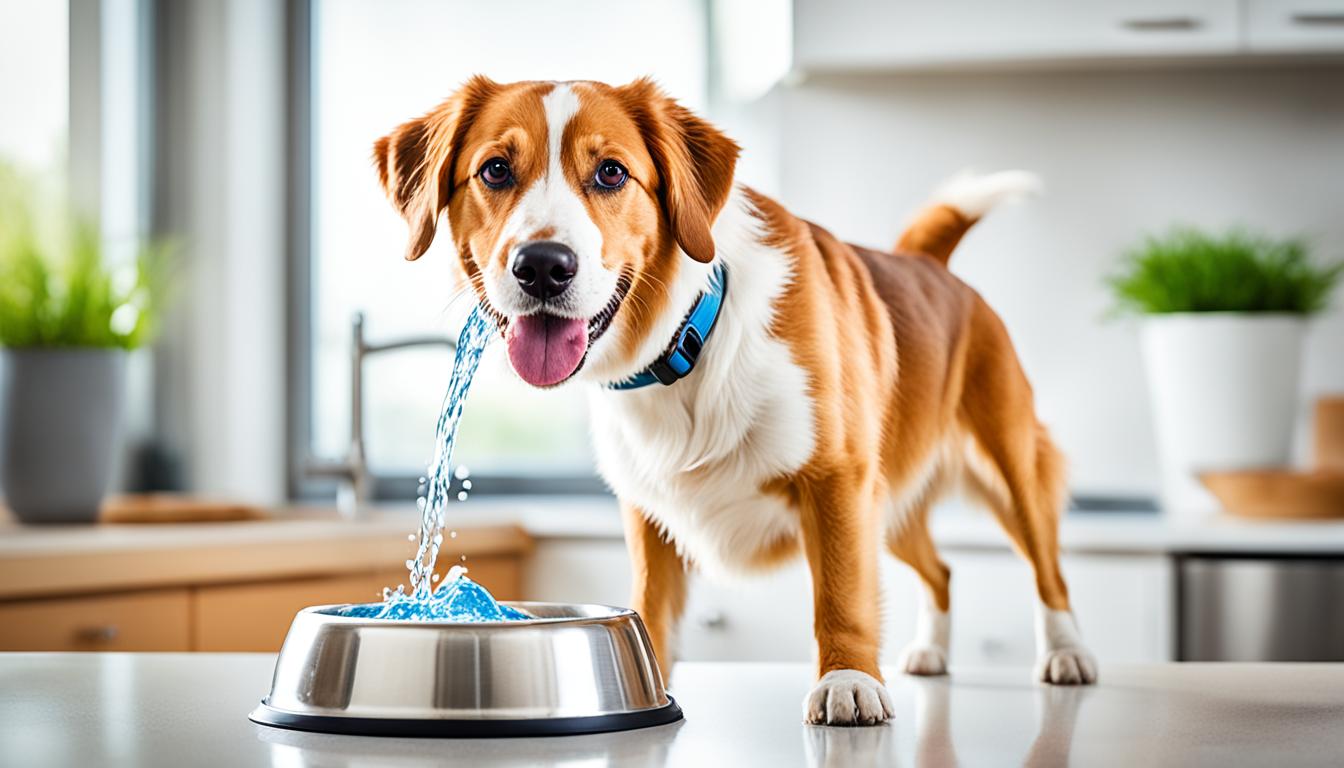Caring for our dogs is not just about giving love. It also includes maintaining good hygiene . As dog owners, we always want to see them healthy and happy. That's why choosing safe food and water bowls for dogs is important. This helps to lower the risk of bacterial infections .
The cleanliness of your dog's eating area is just as crucial as his personal grooming. Cleaning containers after every meal prevents harmful bacteria. Good hygiene also contributes to health. And it prevents diseases that can spread from animals to humans.
Important issues
- Preventing bacterial infections in dogs starts with clean litter boxes.
- It is important to always wash the containers after meals.
- Provide extra containers to make cleaning easier.
- Don't ignore the importance of preventative parasite treatment.
- A clean environment promotes the well-being and health of your dog.
Introduction to Food and Drink Bowl Hygiene for Dogs
Keeping the food bowl clean is very important for dog health . A clean bowl prevents infections and ensures that your dog can eat safely. By cleaning the litter boxes regularly, you take good care of your dog. This also keeps your house cleaner.
Importance of clean litter boxes for dog health
Dogs, just like humans, need a clean place for their food and water. If containers are dirty, it can lead to the growth of bacteria. This is bad for your dog's health. It reduces the risk of diseases such as diarrhea and vomiting.
How often should bins be cleaned?
You should clean your dog's bowls after every use. Here you will see a table with how often you should do this. This helps prevent diseases.
| Type Bin | Daily Cleaning | Weekly deep cleaning |
|---|---|---|
| Plastic container | Yes | Yes |
| Stainless steel | Yes | Yes |
| Ceramics | Yes | Yes |
Daily cleaning includes rinsing and washing with a mild detergent. For deep cleaning every week, use hot water and a more thorough cleaning method. This keeps the place where your dog eats safe and clean.
Safe food and water bowls for dogs
It is important to choose the right food and water bowls for your dog. They must be practical, sturdy and safe. This reduces the risk of bacterial infections. We will look at the best materials. And why dirty bins are a risk.
Risks of dirty food and drink bowls
Inadequately cleaned containers can cause problems. Harmful bacteria such as Salmonella can settle. These are bad for both dogs and humans in the home. Cleaning well and often is therefore essential.
Materials: what is safe and what is not?
When choosing dog bowls, the choice of materials is important. Stainless steel, ceramic, and some plastics are best. They are less porous and therefore retain fewer bacteria. See the advantages and disadvantages in the table below:
| Material | Advantages | Cons |
|---|---|---|
| Stainless steel | Long lasting, easy to clean, hygienic | May make noise when in use |
| Ceramics | Aesthetically pleasing, sturdy | May break if dropped |
| Plastic | Cheap, light in weight | Can sustain scratches that can allow bacteria to grow |
In addition to the correct choice of materials, regular replacement is important. Old or damaged containers must be thrown away. This way hygiene remains optimal.
Types of Bacterial Infections Avoid with Hygiene
Good hygiene is important to keep your dog healthy. Dirt in the litter boxes can lead to bacterial dog infections . This can cause serious problems. It is important to recognize and treat symptomatic infections quickly.
Common bacteria in dog litter boxes
Salmonella and E. coli are often found in dog litter boxes. These bacteria grow where food is left behind. Provide regular cleaning and disinfection to support preventable diseases .
Symptoms of Bacterial Infections in Dogs
Symptoms such as nausea, vomiting, diarrhea, lethargy and fever may indicate an infection. It is crucial to recognize these symptoms quickly. This way you can act in time for treatment and recovery.
- Regular cleaning of food and water containers.
- Using the right cleaning products that are safe for pets.
- Avoid expired food and handle food storage correctly.
- Provide regular veterinary check-ups to monitor health.
These guidelines will help you prevent bacterial infections in your dog. This way you contribute to a happy and healthy life for your pet.
Effective Cleaning of Dog Litter Boxes
To keep your dog healthy, cleaning his litter boxes is very important. This prevents harmful bacteria from growing. Here is the best way to clean the bins.
Choose the right cleaning agent
You have to be smart when choosing a cleaning agent . Some cleaners can make your dog sick. It is better to use a mix of vinegar and water or a mild soap. This keeps the litter box clean and your dog safe.
The steps for deep cleaning
There are a few important steps to cleaning the tank:
- Scrubbing: First, remove all food and dirt with a sponge.
- Rinsing: Then rinse everything thoroughly with warm water. This way all the soap comes off.
- Drying: Make sure the container is completely dry before using it again. This stops bacteria.
Storing Dog Food to Prevent Bacteria
Properly storing dog food prevents bacteria. These bacteria can be harmful to your dog's health. Proper storage method not only keeps the food fresh, but also preserves its nutritional value.
The importance of proper storage and handling of dog food
Proper storage of dog food reduces the risk of bacterial growth. Airtight containers are necessary for dry food to protect it. For wet food, it is crucial to keep it covered in the refrigerator after opening.
Tips for keeping dry and wet food fresh
Keeping food fresh is important for your dog's health. Dry food is best stored in a cool, dry place. Wet food should be used quickly after opening to keep it fresh.
- Avoid storing dry food near heat sources such as ovens or in direct sunlight.
- Ensure that storage containers are properly closed to prevent the entry of insects and rodents.
- Label containers with the date of storage to ensure the oldest food is used first.
Storing dog food safely is essential. It helps prevent bacteria. This way your pet always has access to fresh and nutritious food.
The importance of toy hygiene in dogs
Cleaning your dog's toys regularly is very important. Toys can be full of bacteria because they are often in the dog's mouth. Good hygiene prevents bacterial infections and keeps your pet and family safe.
Toys as a potential source of bacteria
Toys that you don't clean often can be full of bacteria. Whether soft cuddly toys or rubber balls, every toy needs its own cleaning method. This helps to stop germs.
Guidelines for cleaning dog toys
How you clean toys depends on the material. Here are some tips:
- Soft toys: Wash them regularly in the washing machine with mild, perfume-free soap.
- Hard toys: Clean with water and mild cleaner. Then rinse it well.
- Rope toys: Put it in the dishwasher without soap to clean.
| Type of Toy | Cleaning method | Cleaning frequency |
|---|---|---|
| Soft toys | Machine wash with mild soap | Weekly |
| Hard Toys | Solution of water and mild cleaner | After each use |
| Rope toys | Dishwasher without soap | Monthly |
Preventive Measures against Parasites
It is important to have good habits against parasites such as fleas and ticks. These parasites are not just a problem for your pet. They can also be dangerous and transmit diseases. We're going to talk about the risks and how you can prevent them.
Fleas, ticks and the risks of bacterial transmission
Fleas and ticks can make your dog sick. They cause itching and can carry diseases such as Lyme. It is important to know the dangers.
Effective prevention strategies that every owner should know
To protect your dog it is important to take precautions. Use special products such as anti-parasitic collars or sprays. These products should be used according to a veterinarian's instructions.
| Product type | Advantages | Operating time |
|---|---|---|
| Collar | Long lasting protection, water resistant | 6-8 months |
| Pills | Fast-acting, easy to administer | 1 month |
| Injections | Solid long-lasting effect, no daily dosage required | 6 months |
| Sprays | Immediate defense against parasites, extra protection during outbreaks | 2 weeks - 1 month |
Following these strategies can help reduce risks. This ensures a safe environment for your dog.
Contributions of Nutrition and Supplements to Healthy Immunity
The role of dog nutrition in strengthening the immune system is great. A well-balanced diet with essential nutrients improves health. It optimizes your dog's immune support . Let's discover how proper nutrition increases resistance and which nutrients are needed for this.
How nutrition can support resistance to infections
A good nutritional balance is essential for a strong immune system. Foods rich in antioxidants, such as vitamins E and C, help neutralize free radicals. This supports cellular health.
Omega-3 fatty acids, from fish oil, are important for controlling inflammation. This helps in an effective immune response.
Essential nutrients for a strong immune system
Vitamin A keeps skin and mucosal barriers strong, as the first defense against infections. It contributes to healthy immune function. In addition, zinc and selenium are important for the development of immune-related cells. We now provide more information about these important nutrients.
| Nutrient | Advantages | Food sources |
|---|---|---|
| Vitamin C | Antioxidant, supports cellular functions | Citrus fruits, leafy vegetables |
| Omega-3 fatty acids | Modulate inflammatory responses | Oily fish, such as salmon, fish oil supplements |
| Zinc | Supports immune cell functions | Nuts, whole grains, meat |
Providing a diet rich in these nutrients will keep your dog healthy. This way your dog can better withstand diseases. Always talk to a vet before giving supplements. This way you ensure the right balance for your dog.
The Importance of Regular Veterinary Check-ups
It is very important to take your dog to the vet often. Problems can be discovered early during these check-ups. This also helps prevent infections. It is very important to work well with your vet. This way your dog stays in the best condition.
Diagnosis and prevention of infections during routine check-ups
The vet will check whether your dog has any infections. This ensures that diseases can be detected and treated quickly. Vaccinations and tests are also done. This helps your dog live a longer and healthier life.
Work with your vet for optimal health
Working with your vet is very important. By following advice, you create a health plan for your dog. This plan was made especially for him. It ensures that your dog receives the best care.
| Aspect | Interest | Actions |
|---|---|---|
| Periodic Inspections | Essential for early detection of problems | Regular physical exams |
| Preventive Care | Prevents the development of serious diseases | Vaccinations, deworming |
| Medical Advice | Optimizes daily health and well-being | Diet and nutritional advice |
| Necessary Treatments | Effectively treats existing conditions | Medication, surgery if necessary |
Conclusion
Providing a healthy living environment for dogs is important. This way they can live long and happily. Hygiene plays a key role here.
Cleaning is important to defeat bacteria. You should also choose safe food and water bowls . This helps to prevent health problems.
Properly storing food keeps it fresh. It also protects against bacteria. Cleaning toys reduces the risk of diseases.
This contributes to the well-being of our dogs.
Parasite prevention is essential, as are regular visits to the vet. A balanced diet builds a strong immune system.
By taking these steps daily, we give our dogs the best chance at a healthy life.
FAQ
How important is hygiene for my dog's food and water bowls?
Keeping the containers clean is very important. This way you prevent diseases and bacteria. So clean the containers regularly after use.
How often should I clean my dog's food and water bowls?
Wash the containers after every meal. This helps fight bacteria. This way your dog stays healthy.
What are the risks of dirty food and drink bowls?
They can quickly become a source of bacteria. Bacteria such as salmonella cause illness in dogs and humans.
Which materials are safe for my dog's food and water bowls?
Choose stainless steel or ceramic. These materials are non-porous and easy to clean. This way you reduce the risk of bacteria.
What bacteria are common in dogs' litter boxes?
Salmonella and E. coli can be in the containers. So cleaning is important.
What are the symptoms of bacterial infections in dogs?
Watch for signs such as nausea and diarrhea. Eating less and lethargy are also characteristics. Consult your vet if you have these symptoms.
Which cleaning products are safe for cleaning dog litter boxes?
Use mild soap or vinegar with water. Avoid strong chemicals that can be harmful to your animal.
How do I thoroughly clean my dog's food and water bowls?
Scrub the containers and rinse them well. Then let them dry. This way you ensure that all bacteria are gone.
Why is it important to keep dog toys clean?
Clean toys mean fewer bacteria. Fewer bacteria means a smaller chance of infections.
How do I properly store dog food to prevent bacteria?
Place dry food in airtight containers. Store wet food in the refrigerator. Keep everything tightly closed.
What effective prevention strategies are there against parasites?
Use preventive measures such as pills or collars against fleas and ticks. This is how you protect your dog.
How does nutrition support my dog's immune system against infections?
Provide food with fatty acids, vitamins and antioxidants. This strengthens the skin, coat and resistance.
How important are regular veterinary check-ups for my dog?
Very important. It helps in early detection of diseases. This way your dog stays healthy for a long time.



Share:
Interactive Toys: Reduce Anxiety and Behavioral Problems in Dogs
The Risks of Low Quality Dog Food and Drink Units: What You Need to Know